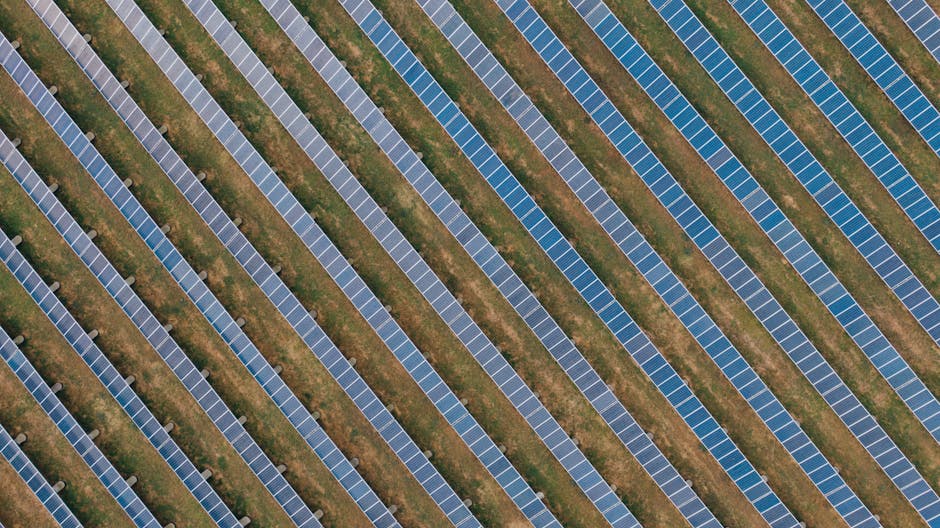How Much Does A 7Kw Solar System Produce?
Solar energy is becoming increasingly popular as a sustainable and cost-effective way to power homes and businesses. One of the most common solar system sizes is the 7kW system. But how much energy can you expect it to produce? In this article, we will explore the production capacity of a 7kW solar system, factors that influence its output, and the benefits of investing in solar energy.
Understanding Solar Power Production
Before diving into the specifics of a 7kW solar system, it’s essential to understand how solar power production works. Solar panels convert sunlight into electricity through photovoltaic (PV) cells. The amount of electricity generated depends on several factors, including:
- Sunlight Exposure: The more sunlight your panels receive, the more electricity they can produce.
- Panel Efficiency: Different solar panels have varying efficiency ratings, affecting how much sunlight they can convert into usable energy.
- Location: Geographic location plays a significant role in solar production due to differences in climate and weather patterns.
- Orientation and Tilt: The angle and direction of your solar panels can impact their performance.
How Much Energy Does a 7kW Solar System Produce?
A 7kW solar system can produce a significant amount of electricity, but the exact output can vary based on the factors mentioned above. On average, a 7kW system can generate between 28 to 35 kilowatt-hours (kWh) of electricity per day. This translates to approximately:
- 840 to 1,050 kWh per month
- 10,080 to 12,600 kWh per year
To put this into perspective, the average American household uses about 877 kWh per month. Therefore, a 7kW solar system can cover a significant portion, if not all, of a household’s energy needs, depending on usage patterns.
Factors Influencing Solar Production
While a 7kW solar system has the potential to produce a substantial amount of energy, several factors can influence its actual output:
1. Geographic Location
Your location plays a crucial role in determining how much sunlight your solar panels receive. Areas with more sunny days will generally see higher energy production. For example:
- Sunny Regions: States like California and Arizona can expect higher production rates.
- Cloudy Regions: Areas with frequent cloud cover, like the Pacific Northwest, may see lower output.
2. Seasonal Variations
Solar production can vary significantly with the seasons. During summer months, when days are longer and sunnier, a 7kW system may produce more energy compared to winter months. Here’s a breakdown:
- Summer: Higher production due to longer daylight hours.
- Winter: Reduced output due to shorter days and potential snow cover on panels.
3. Panel Orientation and Tilt
The angle and direction of your solar panels can greatly affect their efficiency. Ideally, panels should face south (in the Northern Hemisphere) and be tilted at an angle that maximizes sunlight exposure. Adjusting the tilt seasonally can also enhance production.
4. Shading
Shading from trees, buildings, or other obstructions can significantly reduce the amount of sunlight reaching your panels. Even partial shading can lead to a drop in energy production. It’s essential to ensure that your solar panels are installed in a location with minimal shading throughout the day.
Benefits of a 7kW Solar System
Investing in a 7kW solar system comes with numerous benefits, making it an attractive option for homeowners and businesses alike:
- Cost Savings: By generating your own electricity, you can significantly reduce or even eliminate your monthly energy bills.
- Environmental Impact: Solar energy is a clean, renewable resource that helps reduce your carbon footprint.
- Energy Independence: Producing your own energy means less reliance on the grid and protection against rising energy costs.
- Increased Property Value: Homes with solar systems often see an increase in property value, making it a smart investment.
Calculating Your Savings
To understand the financial benefits of a 7kW solar system, it’s essential to calculate potential savings. Here’s a simple way to estimate your savings:
- Determine Your Average Monthly Energy Usage: Check your utility bills to find your average kWh usage.
- Estimate Your Solar Production: Use the average production of 28 to 35 kWh per day for a 7kW system.
- Calculate Your Savings: Multiply your monthly production by your local electricity rate to find your potential savings.
For example, if your system produces 900 kWh per month and your electricity rate is $0.12 per kWh, your savings would be:
900 kWh x $0.12 = $108 per month
Financing Options for Solar Systems
Investing in a solar system can be a significant upfront cost, but various financing options can make it more accessible:
- Cash Purchase: Paying for the system upfront can provide the best long-term savings.
- Solar Loans: Many banks and credit unions offer loans specifically for solar installations.
- Leasing: Some companies allow you to lease solar panels, reducing upfront costs while still benefiting from solar energy.
- Power Purchase Agreements (PPAs): You pay for the energy produced by the solar system rather than the system itself.
Incentives and Rebates
Many governments offer incentives and rebates to encourage solar adoption. These can significantly reduce the overall cost of a solar system:
- Federal Tax Credit: In the U.S., homeowners can claim a tax credit for a percentage of the cost of their solar system.
- State Incentives: Many states offer additional rebates or




